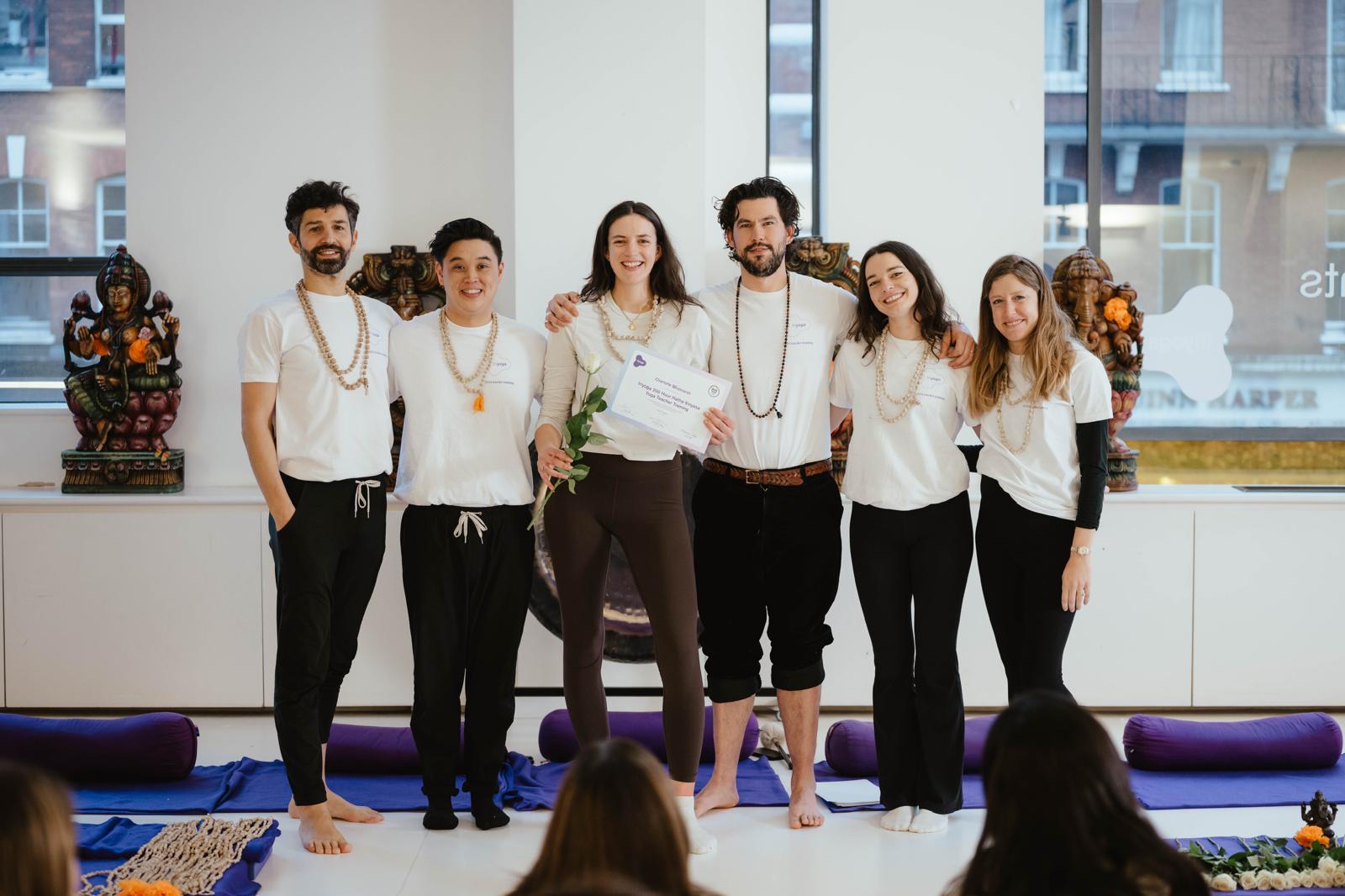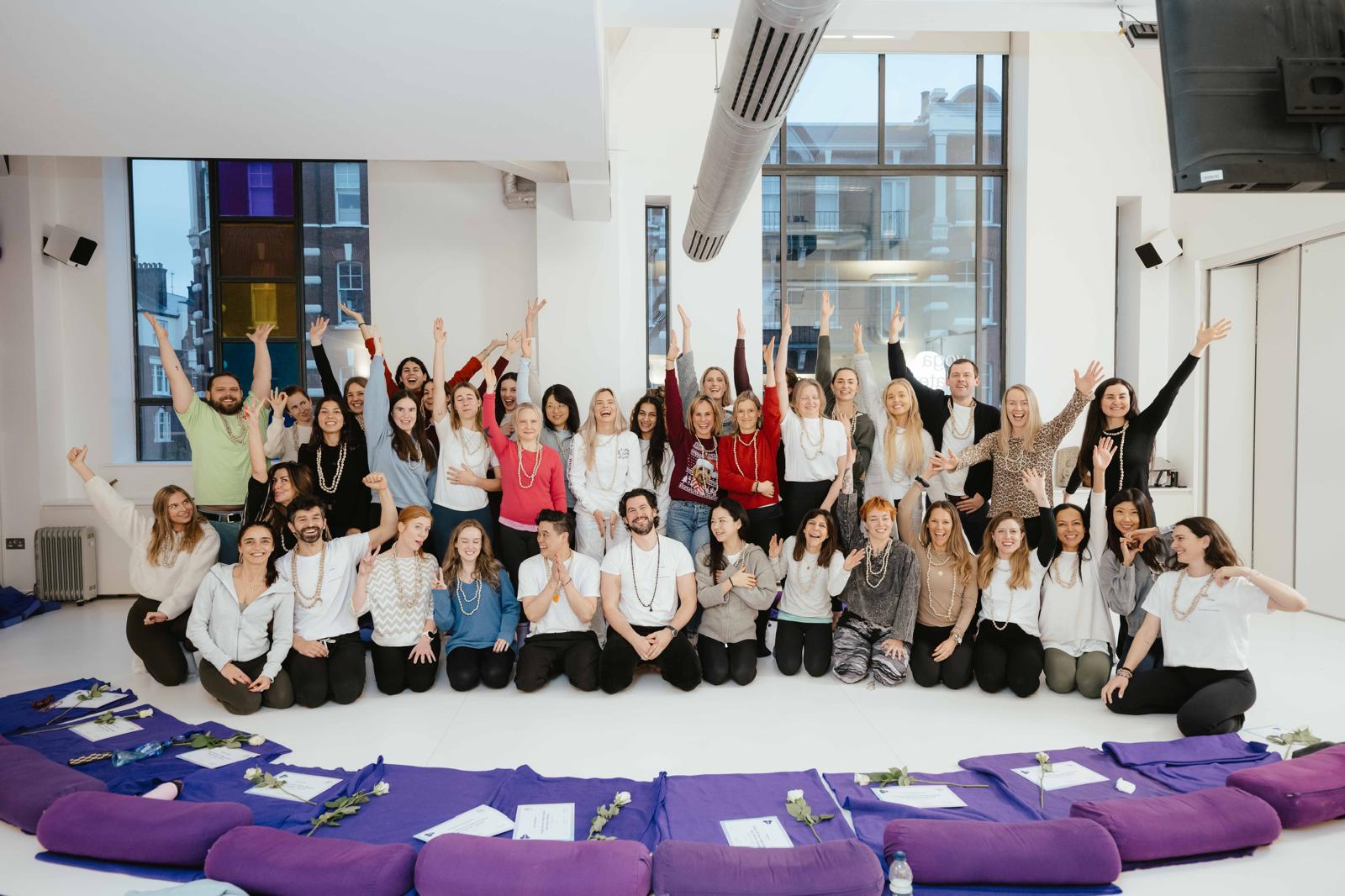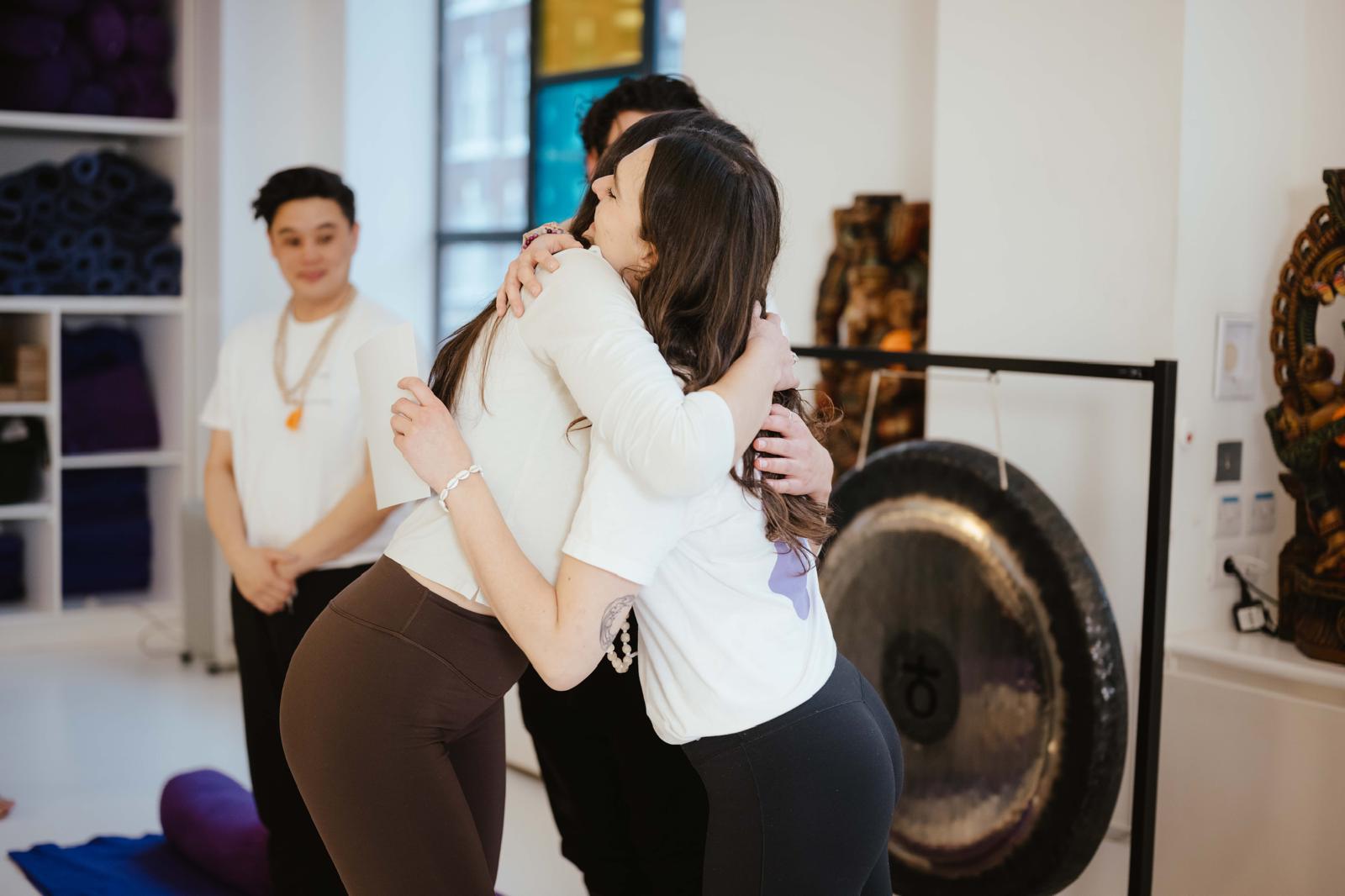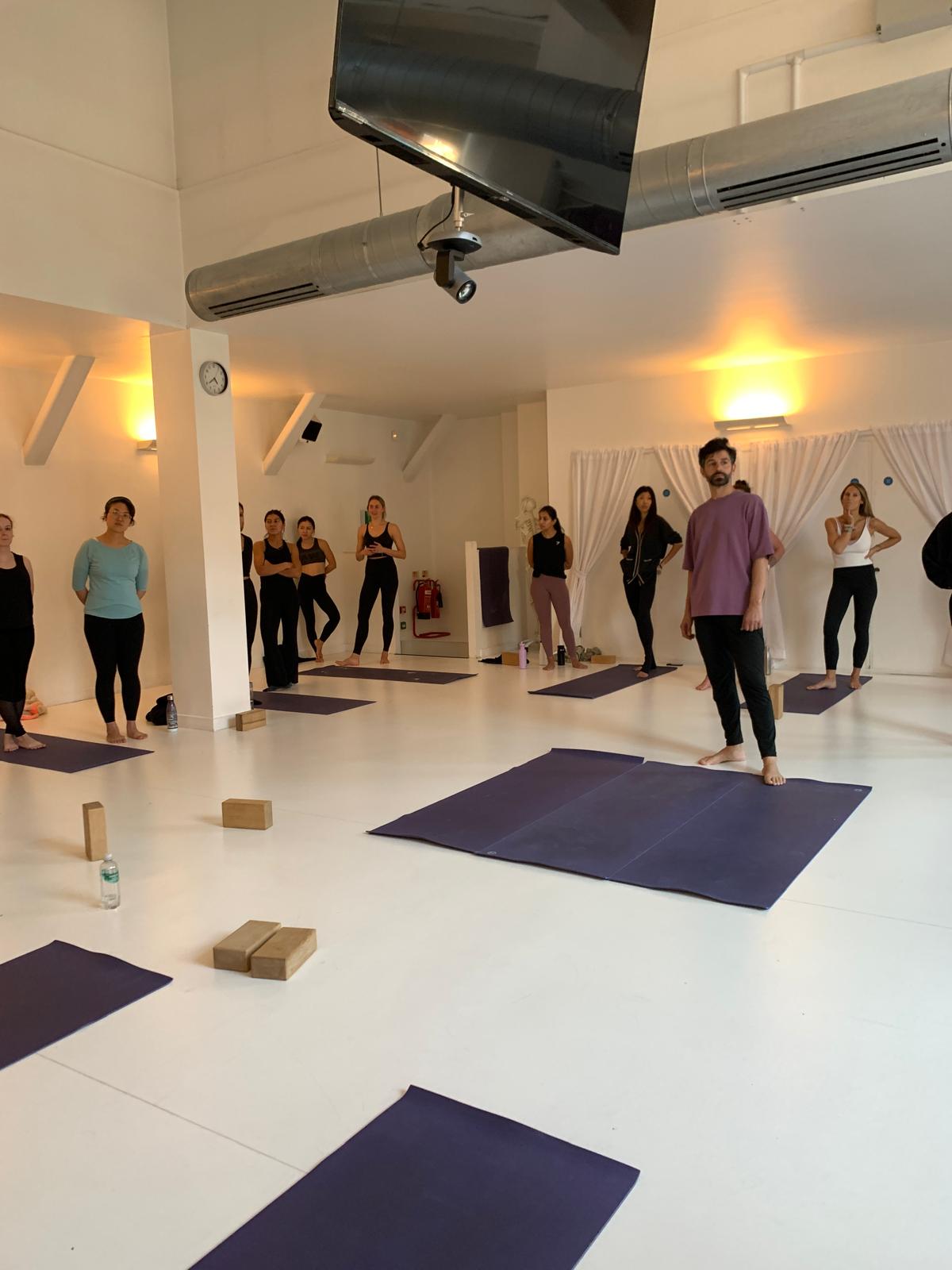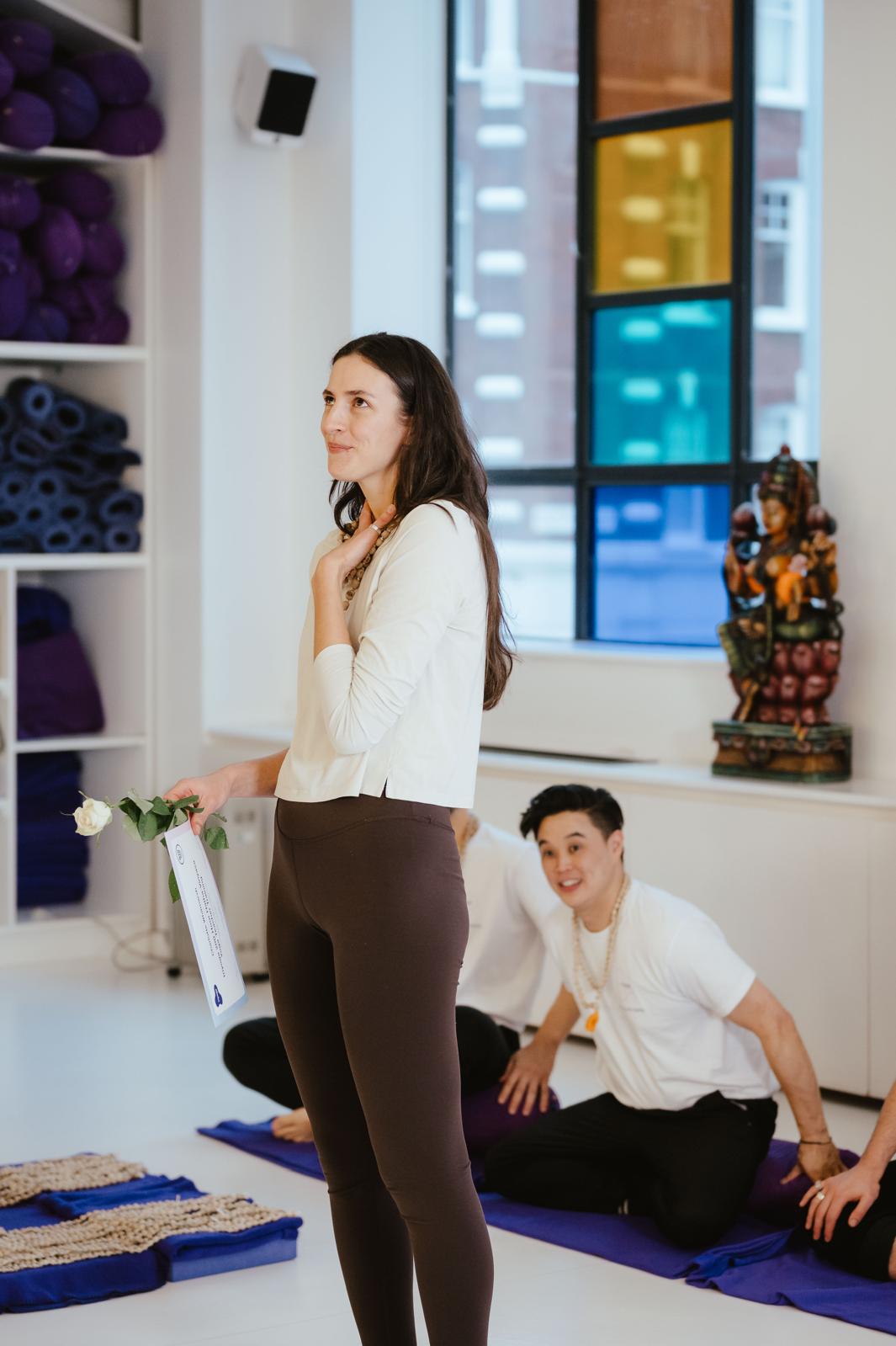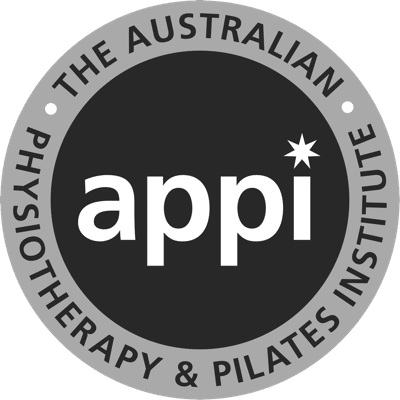Is Yoga Right For You?
For those that do not know, I love yoga.
I first discovered it during lockdown. I devotedly practiced every day, as well as triathlon training and a lot of hiking. Needless to say, my exercise routine looks rather different these days. But my love for yoga has stuck. So much so that I recently underwent my teacher training in London under the AMAZING Adam Husler and Michael James Wong, in order to learn more about the practice and possibly help others to love yoga just as much as I do.
When we talk about yoga, most people think of nice stretching and breathing, maybe some cool shapes. Possibly a way to say you’ve done exercise today without having worked too hard. However, I’m going to defend this wonderful practice and say that this couldn’t be further from true!
So, what is yoga?
In a nutshell, it is an ancient practice originating in northern India. It offers a path and values by which to live, which is rooted in spirituality and devotion to a higher purpose. I am not under the illusion that most people who go to a yoga class are there for the wider and deeper benefits, rather than just for the physical benefits, and this is totally fine! But it is important to understand the context of this. Yoga spans across your entire lifestyle. It can include moral code, how you treat yourself and others, breathing practice, meditation, physical exercise, teachings on how to navigate the world and this life and devotion to whatever resonates with you.
The practice has evolved heavily over time. It no longer looks the same for most people as it once would have in Northern India. However, its roots remain unchanged with a rich history and a lot to learn that can be applied to modern day life. Most people are familiar with Asana practice (physical practice) as it’s now a very popular form of exercise across the world.
So from a healthcare perspective, we will be focussing on this to answer some interesting questions (with a little bit of input from the other parts of yoga too).
Is yoga for everyone?
Many musculoskeletal healthcare practitioners would agree that one type of exercise is not for everyone, and too much of one thing will be detrimental. And this is true. There is also the argument that yoga (based on peoples beliefs about what it involves) is heavily flexibility-biased, and most classes you go to will have an aspect of stretching and mobility focus.
So for hypermobile people, although they will find a lot of yoga relatively easy, it could be detrimental to them as they are already “too flexible”. There are also people who, based on various injuries or conditions, should not be stretching certain muscle groups. And a typical yoga class will not accommodate for this. So there are certain people for whom going to a yoga class will not best serve them or their bodies. I would also stress that ideally, yoga should never be the ONLY form of exercise you do. Variety is key to a healthy functioning body.
However, I would argue that Yoga is not “one thing”, it can look however you want or need it to. The belief that yoga is only stretching is not true. There are many different types of yoga which range in style greatly. The likelihood is, that there is a form of practice which will benefit pretty much anybody. As long as there is a good understanding of ones limitations and the style of practice you are aiming for.
What I love about modern yoga is that you really can take what you need from it and leave what you don’t. You can make it a practice which best benefits you. To get the most out of a practice, it does take a degree of self-awareness, which takes time to learn. Without this, we are vulnerable to injuring ourselves by doing too much, too soon, or not engaging in the correct way. The physical practice is an opportunity to learn about yourself and your body and tune in to your needs on each day, which we do not get enough of a chance to do in our day to day lives. To benefit from a yoga practice, you have to be familiar with integrity and intention.
Are you practicing at the correct level for you in the right way for your body? and are you achieving what you set out to achieve?
Another reason why I believe that yoga IS for everyone, is because, as we touched on earlier, it is so much more than making cool shapes. It is a broad practice which spans across our whole lifestyles. We can use it to reduce stress, make decisions and live a happier, more meaningful life. How can we argue with that?!
You can see how yoga is not prescriptive, the practice varies hugely based on your needs. So yes, yoga is for everyone, but no, not all yoga is for everyone.
Is yoga for you?
To answer this question, I’d like to explore a few common body types. You can also have a think about which one you might be…
- Firstly, there are people who are strong with short muscles. Some common, more extreme examples here might include weight lifters, body builders, sprinters or middle distance runners. Is yoga suitable for this group of people? Yes. This body type would benefit from a gentle, stretch-focussed yoga practice to increase length in their muscles which are otherwise tight. Yin yoga is a great style for this.
- Secondly, people who are strong with long muscles. An extreme example of this might include gymnasts or people who do a lot of functional exercise. Is yoga suitable for this group of people? Yes. This body would benefit from any type of yoga practice depending on what they want to get out of it. It will help them to use their bodies in new ways and explore alignment principles.
- Thirdly, people with weak and long muscles. Examples of this would be anybody on the hypermobility spectrum. Is yoga suitable for this group of people? Yes (Are you spotting the theme yet?). This body type would benefit from a strong, stability and control focussed practice where they move slowly and hold active poses. It is important to note that this body type is likely most at-risk of injuring themselves by doing yoga. This is because the deepest poses are usually available to them, so they push themselves into shapes that are not good for their, already very mobile, bodies. So great care and understanding must be taken to adapt poses to create more strength and activation, rather than lengthening and stretching, even though this will feel so much harder! This type of yoga will help this body type to build strength and stability where they are naturally lacking.
- And lastly, people with weak and short muscles. A common example of this would be the older generation, or people who work at desks a lot and spend long periods sat down. Is yoga suitable for this group of people? Yes! This body type would hugely benefit from, again, pretty much any style of yoga. Preferably with a nice balance between flexibility and strength. Vinyasa yoga is a great option for this.
Of course, from a clinical perspective, there are caveats to all of these. Each individual will further benefit from a more personalised practice than these generic guidelines. But this is a good place to start.
Is all yoga created equal?
The delivery mechanism of a yoga classes is really important.
For example, online classes are a great and accessible option for lots of people. It allows them to fit yoga into their day to day lives. However, I believe that to practice safely using an online class takes a certain amount of experience and understanding of your body, so be careful with this.
An in person class is great for gaining a better understanding and learning how to practice safely. However, I do not feel that a general open level class setting is appropriate for everyone. As we touched on above, if you are suffering with a specific injury, this is unlikely to be appropriate for you as the class sequence will not be specific to your ailment. It may even include things which could aggravate your injury, so a more personalised, 1-1 approach may suit you better. Also, if you are hypermobile, always practice in a class setting with caution as, again, there will likely be some elements to the class which do not benefit your body type and may lead to injury. So a 1-1 setting or finding a teacher with a solid understanding of this is likely to benefit you much more.
Overall, I may be biased, but I believe that yoga is a practice which can benefit absolutely everyone in one way or another. As exercise, there is a form of physical practice which will suit and benefit all kinds of bodies. And as a deeper practice, there is so much that we can learn about ourselves and the wider world. There are so many skills in yoga that can help us to lead happier, more peaceful lives.
Just remember that yoga IS for everyone, but not ALL yoga is for everyone.
Please send me an email if you have any further questions and I will be more than happy to discuss this topic further.
Read on to our last article The Importance of Proper Gym Form by Sports Therapist, Gabby.
